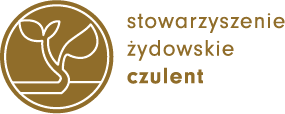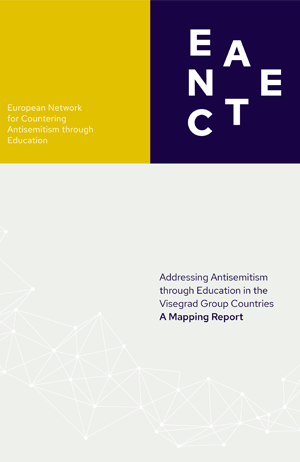Addressing Antisemitism through Education in the Visegrad Group Countries. A Mapping Report
Education is a public good available to everyone regardless of their origins and social status. It is a tool that can influence and change attitudes, increase the openness of society and counteract antisemitism. How can education addressing antisemitism function when international human rights are seen as a threat to sovereignty and national values, when antisemitism, Islamophobia and xenophobia are politicized, and
minorities are excluded from civil rights? How can education function in the Visegrad Group (V4) countries when antisemitism has been instrumentalized, turned into a political tool and cultural code in the region? Close cooperation of authorities, non-governmental organizations, educational institutions and the Jewish communities to effectively prevent antisemitism, seems to be the only solution.
Therefore, this report’s primary goal is to verify whether such cooperations occur and map the measures taken to counteract antisemitism through education. The research focuses on the V4 countries in Central Europe—Poland, Czech Republic, Slovakia and Hungary—and was conducted from March through to the end of September 2021.
This report is based on a variety of sources. First and foremost, this mapping report draws on the latest studies on antisemitism published in the Visegrad countries. Secondly, it examines the policies implemented as a result of the V4 countries’ commitments to fostering remembrance and education about the Holocaust and antisemitism. Finally, governmental and non-governmental initiatives were analyzed as a source of good practice in addressing all forms of antisemitism as well as other forms of intolerance and discrimination.
In addition to desk research, this report is based on 24 interviews with experts, researchers, and pioneers in creating school curricula and textbooks on the Holocaust and antisemitism. The interviewees are chosen from various non-governmental organizations, educational institutions, schools, academies and international institutions to truly represent the educational scene dealing with antisemitism. Interviews were also conducted with members of the Jewish community to depict community
involvement and to examine the effectiveness of the actions taken.
Contents:
- Foreword
- Introduction
- Methodology
- SECTION 1: Antisemitism – Problem Definition and legal Mechanisms
- SECTION 2: Holocaust Commemoration
- SECTION 3: Education Addressing Antisemitism
- SECTION 4: Nonformal Practices and Pedagogies Tackling Antisemitism
- SECTION 5: Recommendations
This publication was made possible through the financial support of the German Federal Foreign Office. The views, opinions, and positions expressed in this publication do not necessarily represent the views of KIgA e.V., Federal Foreign Office, ENCATE member organizations and other partners.
nasze publikacje

